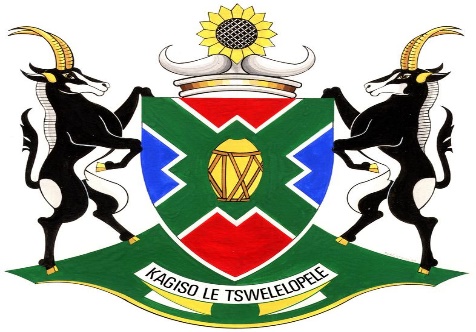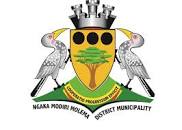Supply Chain Management (SCM)
- The Ramotshere Moiloa Municipality’s Supply Chain Management Unit is a support function for all business units within the council to ensure provision of efficient, transparent, fair, equitable and cost effective procurement services hence assisting them to implement their service delivery priorities.
- In terms of the MFMA SCM regulations the SCM unit is established to implement the SCM policy adopted by council.
- It operates under the direct supervision of the Chief Financial Officer or an official to whom this duty has been delegated in terms of section 82 of the Act
Core Functions
- Demand Management;
- Acquisition Management;
- Logistics Management;
- Disposal Management;
The supply chain management policy for the year 2012/2013 was adopted by Council in 30 May 2011 in term of SCM Regulation 3 (1) (a) . The main change made to the policy was to bring it in line with the structure of the SCM regulations. The aim was to establish a credible base from which the business processes can be developed.
Further review of the current SCM policy was done in December 2011 to further align the policy to Preferential Procurement Regulations 2011, issued in terms of the section 5 of the preferential Procurement Policy Framework Act, Number 5 of 2000 (PPPFA). The regulations were published in the Government Gazette on 08 June 2011 the new regulations aims to align the Preferential Procurement Policy Framework Act, 2000 and the Broad – Based Black Economic Empowerment Act, 2003 effective from 7 December 2011, issued by National treasury
Performance of Supply Chain Management
In terms of the MFMA SCM regulations, the SCM policy of the municipality must provide for a system of demand, acquisition, logistics, disposal, risk and performance management, and the current policy has been aligned to provide for that.
Demand Management
The preferential policy objectives were identified at a global level hence during the 2012/2013 financial year a procurement plan was established and the procurement preferential preference points were set on how these objectives will be met for each contract for the new financial year was developed.
Acquisition Management
Thresholds as per section 12 of the SCM regulations has been set and complied with throughout the year. A thorough review of the bid documentation was done to ensure full compliance with circular 25 and the latest SCM regulations and to ensure full compliance with circular 25 for the 2012/2013 financial year.
It was also noted that the following provisions of the SCM regulations were not fully complied with during the financial year, this will however be rectified in the new financial period; Regulations 42, 44 and 38 (i).
Logistics Management
An effective system of logistics management has been established. The continuous interrogation of inventories and improvements on systems and processes has yielded positive results in that there is a progressive reduction of stock holdings. Although purchases are slightly higher than last year, there is ongoing liaising with end user sector departments on inventory holdings and have been able to utilize slow moving stock to good advantage.
There is a marked improvement on utilizing cable stock that has been held for a long period, which had a positive impact on purchases and has contributed to the reduction in purchases as per the graph below.
Disposal Management
An effective system of disposal management has been established and detailed processes developed to ensure compliance with section 40 of the SCM regulations. Asset and Disposal Committee was also established during the 2011/2012 financial year.
Risk Management
The contracts are being monitored on monthly basis, though there is a human capital challenge as there is only one monitoring officer. Also measures are now being put in place to ensure identification, consideration and avoidance of potential risks in the supply chain management system in accordance with section 41 of the SCM regulations. The supply chain management operational risk register was established and is in place.
Performance Management
The Ramotshere Moiloa Local Municipality has SCM policy that ensures compliance and monitoring of compliance with the SCM regulations and processes has been developed and implemented. The policy enforces the accountability to all individuals involved in SCM and to ensure that SCM processes are independently monitored to ensure that the SCM policy is followed and desired objectives are achieved.
Training of SCM Practitioners and Bid Committees
SCM Management, SCM practitioners and Bid Committee members were trained during 2011/2012 as per SCM Regulation 8 in accordance with Treasury guidelines on supply chain training to meet the competency level required for supply chain practitioners. Further training is being provided over a period of two years that consist of 20 modules.





